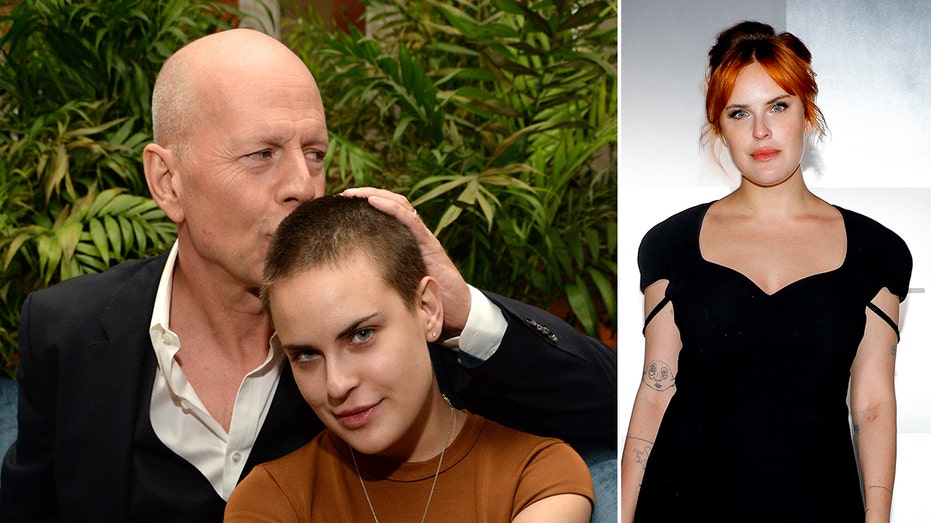Bruce Willis’ daughter Tallulah revealed she was diagnosed with autism as an adult.
The 30-year-old shared a throwback video of herself with Bruce at an event. In the clip, Tallulah can be seen touching Bruce’s face while he gives a red carpet interview.
“Tell me you’re autistic without telling me you’re autistic,” Tallulah, the daughter of Bruce and Demi Moore, captioned the post Friday.
BRUCE WILLIS’ DAUGHTER GIVES UPDATE ON HIS DEMENTIA: ‘I SEE LOVE WHEN I’M WITH HIM’
APP USERS CLICK HERE TO VIEW THE INSTAGRAM POST
Tallulah later said in the comments that she’d never shared the news before.
“Actually this is the first time I’ve ever publicly shared my diagnosis,” she told a social media user. “Found out this summer and it’s changed my life.”
In another comment, she referred to herself as “neurospicy.”
Autism refers to a “broad range of conditions characterized by challenges with social skills, repetitive behaviors, speech and nonverbal communication,” according to the organization Autism Speaks.
LIKE WHAT YOU’RE READING? CLICK HERE FOR MORE ENTERTAINMENT NEWS
The Willis family has spent the last year learning to live with the “Die Hard” actor’s frontotemporal dementia (FTD) diagnosis.
Tallulah spoke about her father’s dementia diagnosis during an appearance on “The Drew Barrymore Show” in November. “He is the same, which I think in this regard I’ve learned is the best thing you can ask for,” Tallulah said.
“I see love when I’m with him, and it’s my dad, and he loves me, which is really special,” she added.
Tallulah explained that Willis’ FTD is “a very aggressive cognitive disease; [a] form of dementia that’s very rare.”
CLICK HERE TO SIGN UP FOR THE ENTERTAINMENT NEWSLETTER
Barrymore asked Tallulah why the family had chosen to “be so open” with the public about Willis’ condition.
“Well, I think it’s twofold. On one hand, it’s who we are as a family, but also, it’s really important for us to spread awareness,” she explained.
Tallulah further noted her family “had no idea” what it would be like caring for someone with frontotemporal dementia.
“If we can take something that we’re struggling with as a family to help other people, to turn it around to make something beautiful about it, that’s really special for us,” she said.





